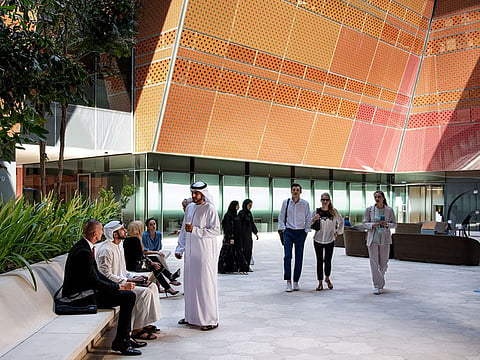UAE developers are getting the sustainability message loud and clear
It may have taken time, but developers no longer shy from doing their bit on environment

The stats speak for themselves: the World Bank notes the construction sector contributes to around 17 per cent of greenhouse gas emissions in the GCC. Statista says that the UAE not only had the world’s fourth highest energy consumption per capita in 2021, but in addition, real estate activities generate around 5.5 per cent of the UAE GDP.
Therefore, it’s hardly surprising that sustainability has become an increasingly huge part of developers’ strategies in the region. Many local developers have started to prioritize sustainable property features that positively impact the environment, and the UAE itself has made considerable progress in green real estate, particularly in real estate transparency.
Furthermore, the UAE has set clear goals for the country to be more sustainable and implemented several sustainability initiatives, including the UAE Energy Strategy 2050, which aims to increase the contribution of clean energy in the total energy mix from 25 per cent to 50 per cent by 2050. The UAE is also home to Masdar City in Abu Dhabi, a pioneering sustainable urban development and a dedicated hub for the R&D of innovative sustainability-focused technologies. Masdar City was conceived in 2008 by Masdar Abu Dhabi Future Energy Company .
A 'green' REIT
In January 2021, Masdar entered a strategic agreement with Emirates NBD Asset Management to provide services for the Masdar Green Real Estate Investment Trust (REIT), the first in the UAE to invest solely in sustainable real estate projects. The portfolio currently includes four commercial properties within Masdar City, all built to consume approximately 40 per cent less electricity and water than comparable buildings in Abu Dhabi. These buildings have a rating of three Pearls or above on Abu Dhabi’s Estidama Pearl Building Rating System, while one is also LEED Platinum certified (Leadership in Energy and Environmental Design), the highest level in LEED certification, thr most widely used green building rating system in the world.
The Masdar Green REIT is set to facilitate more sustainable real estate assets coming to market by providing institutional funding to support the future expansion of Masdar City through new sustainably built developments.
Full-fledged sustainability
As for Dubai, the city showed its intentions of becoming a global leader in sustainable living by building ‘The Sustainable City’. This residential development by Diamond Developers is Dubai’s first operational Net Zero Energy city, and with a state-of-the-art waste management system, it aims to achieve 100 per cent waste diversion from landfills. The city already consists of 500 townhouses and villas and has the potential to become a landmark community in Dubai.
Moreover, Expo 2020 was also a major component of the UAE’s sustainability agenda and was consequently labelled the most sustainable Expo. Terra - the Sustainability Pavilion, an exemplar of environmental self-sufficiency - is a 100 per cent self-sustaining structure in the middle of the desert consisting of solar panels that could power a car halfway to Mars, technology that collected water from the air, as well as a greywater system that reduced water consumption by up to 75 per cent. The pavilion was also awarded the prestigious LEED Platinum certification.
Upgrades do their part
ENBD REIT has also been significantly involved in advancing the UAE’s green agenda. Recently, the company completed the refurbishment of its flagship property Al Thuraya Tower 1, creating a functional and sustainable high-end office destination in Dubai Media City. Upgrades included the installation of four environmentally friendly chillers, as well as LED lighting, which aim to reduce energy consumption, improve efficiency, and promote a healthy, safe, and clean environment. Al Thuraya Tower 1 was one of the first buildings in the UAE to pursue the WELL Health Safety rating in a bid to prioritize the health and safety of tenants, visitors, and other key stakeholders. In March last, ENBD REIT’s The Edge Building, its largest asset by value in Dubai Internet City, was awarded LEED Gold certification, a true testimony to the company’s commitment to sustainable building management that served the property’s initial energy efficient design and construction. By implementing eco-friendly initiatives and solutions in areas including energy, water, waste management, indoor environmental quality, and several others, the building has been able to reduce its water consumption by 50 per cent - the equivalent of 47 families water use for a month -its energy consumption by 24 per cent (the equivalent to powering 15.4 homes in a year), and waste production by 11 per cent (equivalent to 469 trash bags of waste recycled instead of landfilled).
While the UAE currently has one of the largest environmental footprints in the world, and still has much to do to improve transparency in its real estate sector, the country is working toward being one of the lowest global emitters. There is still a long way to go - but we are certainly seeing green shoots in UAE real estate.



